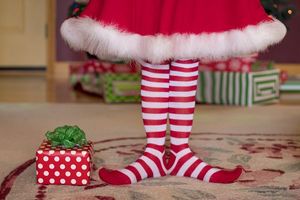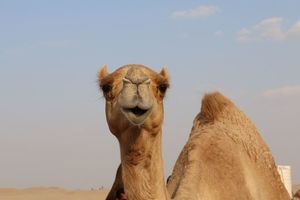The Art of Xmas
Submitted by Dan MacIsaac
Christmas is stage and spectacle—lighting, costumes, song, set and dance. It features hammy acting (Oh I just love this pair of candy cane stockings! Or, ooh, this freebie library card—I’ve always wanted one of these but got scared off by that grim librarian!). Xmas is about transformation. The Godhead metamorphosed into the Infant Tender & Mild. Withered, shrunken fruit becomes a petrified pastry--and community is created as that anvil of fruitcake passes from hand to hand, re-gifted from frenemy to frenemy. Spare change becomes Dollar Store treasure. This season of metamorphosis becomes prime time for poetry.
The season even has its villains: Herod, Scrooge, the Grinch and the dreaded Credit Card Limit. And let’s not forget Canada Post with its express blackmail rates, highway robbery parcel service, tortoise-paced delivery, and slug-paced line-ups. Imagine if Santa subcontracted his chimney gift delivery to the cheapest bidders who shun homes in favour of concrete and steel communist mail boxes. But the poetic spirit of Christmas allows us to forget those rogues for a while.
Christmas also causes the fine art of Cookery—which leads to the Deadly Sin of Gluttony. Festive scents of cinnamon, ginger and nutmeg suffuse the house. Visions of sugar-plums polka in our heads. Butterball birds sizzle and crisp in the oven. Cranberry sauce sputters tartly on the stove top. How we stuff our turkeys, our faces, our stockings! Cookies and milk—and sometimes overproof rum—are left out for St. Nick. Good ole Santa, the patron saint of gluttony, hauls a sack of gifts humungous as his hefty paunch. But unlike Cookery (the swollen art of excess), Poetry is trim and spirited, granting the charitable gift of beauty.
Orkneyman George MacKay Brown shows the disconnect between money and spirit in “The Lodging” :
The innkeeper over the fire
Counting his haul, hears not
The cry from the byre;
But rummaging in the till
Grumbles at the drunken shepherds
Your CanLit News
Subscribe to Open Book’s newsletter to get local book events, literary content, writing tips, and more in your inbox
Dancing on the hill;
And wonders, pale and grudging,
If the queer pair below
Will pay their lodging.
Robert Service’s “The Christmas Tree” features a talking conifer. The needle tree’s griping about mass consumption is probably just sour grapes. Nobody bought it. O overlooked Tannenbaum —how lonely are thy branches! Yule Tree as versifying wall flower. Robert Service has the Pathetic Fallacy working overtime during extended holiday hours as the loser tree laments:
“So they stood me up with a hundred more
In the blaze of a big department store;
But I thought of the forest dark and still,
And the dew and the snow and the heat and the chill.”
In “El Camelo,” Iberian poet Gloria Fuertes brings comic realism to what a child would want for Christmas. Her Christ Child spurns the Three Kings’ gifts, and insists:
--I don’t want incense or gold
nor these treasures so cold,
I want the camel, I want it.
I want it—the Child repeated.
The speaker in Steven Price’s “The Second Magi Returns to Parthia” is not just an orient king plodding after “yonder star” like the royal gift bearers of the traditional carol. This Parthian monarch confesses:
Forty nights
we rode withering in darkness, lit by a star
inside us. That was the real gift we bore.
Luci Shaw in “Mary’s Song” strikes the right note, celebrating the Christmas sanctuary of love: “Blue homespun and the bend of my breast/ keep warm this small hot naked star.”
Poets tell us that the spirit of Christmas is not merely a retail experience but something warm, mysterious and intimate, living within the family and within the star-guided self.
Merry Christmas!
The views expressed in the Writer-in-Residence blogs are those held by the authors and do not necessarily reflect the views of Open Book.
Raised on Vancouver Island, Dan MacIsaac is a third-generation lawyer and served for ten years as a director on the board of the Environmental Law Centre at the University of Victoria. His poetry, verse translations, and fiction have appeared in a wide variety of literary journals and magazines. One of his stories was short-listed for the 2009 CBC Literary Awards, one of his poems received the 2014 Foley Prize from America Magazine, and another poem was short-listed for the 2015 Walrus Poetry Prize. He lives in Victoria. Cries from the Ark is his first poetry collection.




